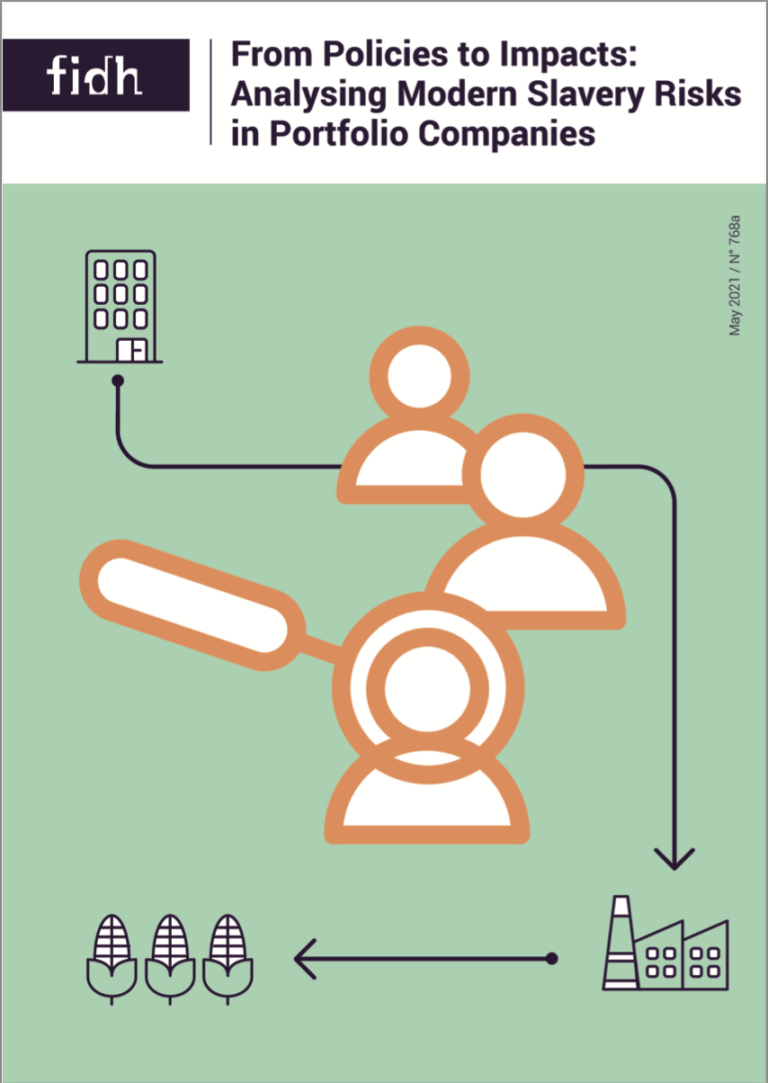Does Human Trafficking Exist in Your Community?: Examining Reports and Reviewing Facts
GuidanceA reference tool to assist community actors in finding reliable sources of data about human trafficking incidents in their area.
As a result of the progressive legalization of international business and human rights “soft law” standards, the “S” of “ESG” is no longer an optional criterion for investors to include in their decision-making process, but it is becoming part of their normative duty to respect human rights. In this report, the International Federation for Human Rights (FIDH) gives investors tools to identify and address human rights risks, including modern slavery risks, in their investment portfolios, from the perspective of an international human rights organization working with its members and communities around the world to protect human rights from corporate abuses. Since 2001, FIDH has been working in partnership with La Banque Postale Asset Management (LBPAM) on its own responsible investment fund (SRI Human Rights Fund). FIDH has developed a human rights methodology in order to assess which companies are suitable to join the investment portfolio. As part of the Moving the Market Initiative, FIDH has revised its existing human rights evaluation methodology to include performance tools that can facilitate the assessment of modern slavery and has used this updated methodology to analyze a list of companies in four sectors: Tourism, Construction, Food and Beverage, and Textile and Footwear. The conclusions of this analysis are presented in this report, including a specific description of the results per sector, with a focus on modern slavery, along with the identification of transversal risk areas which relate to some of the root causes of modern slavery.

A reference tool to assist community actors in finding reliable sources of data about human trafficking incidents in their area.
The existence of our group, the Malawi Network Against Trafficking, is testament to the high level of collaboration and support that already exists within the anti-trafficking sphere in Malawi. We are very lucky to have a community that spans nearly...Read More
Employers and business play a vital role in protecting migrant workers and their communities during the COVID-19 pandemic. Many provide essential care, services and goods and, in doing so, rely heavily on their migrant workforce. This includes nurse...Read More
This review examines what victim identification tools and resources are publicly available, primarily in English, to support the identification and referral of trafficking victims, with a focus on countries in Asia. It is intended for policymakers a...Read More